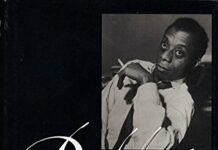
Ebook Info
- Published: 2013
- Number of pages: 176 pages
- Format: EPUB
- File Size: 2.11 MB
- Authors: James Baldwin
Description
Set among the bohemian bars and nightclubs of 1950s Paris, this groundbreaking novel about love and the fear of love is “a book that belongs in the top rank of fiction” (The Atlantic). In the 1950s Paris of American expatriates, liaisons, and violence, a young man finds himself caught between desire and conventional morality. David is a young American expatriate who has just proposed marriage to his girlfriend, Hella. While she is away on a trip, David meets a bartender named Giovanni to whom he is drawn in spite of himself. Soon the two are spending the night in Giovanni’s curtainless room, which he keeps dark to protect their privacy. But Hella’s return to Paris brings the affair to a crisis, one that rapidly spirals into tragedy. David struggles for self-knowledge during one long, dark night—“the night which is leading me to the most terrible morning of my life.” With a sharp, probing imagination, James Baldwin’s now-classic narrative delves into the mystery of loving and creates a deeply moving story of death and passion that reveals the unspoken complexities of the human heart.
User’s Reviews
Editorial Reviews: Review “If Van Gogh was our 19th-century artist-saint, James Baldwin is our 20th-century one.” —Michael Ondaatje “A young American involved with both a woman and a man. . . . Baldwin writes of these matters with unusual candor and yet with such dignity and intensity.” —The New York Times“Absorbing . . . [with] immediate emotional impact.” —The Washington Post“Mr. Baldwin has taken a very special theme and treated it with great artistry and restraint.” —Saturday Review“Exciting … a book that belongs in the top rank of fiction.” —The Atlantic“Violent, excruciating beauty.” —San Francisco Chronicle“To be James Baldwin is to touch on so many hidden places in Europe, America, the Negro, the white man —to be forced to understand so much.” —Alfred Kazin“This author retains a place in an extremely select group; that composed of the few genuinely indispensable American writers.” —Saturday Review“He has not himself lost access to the sources of his being —which is what makes him read and awaited by perhaps a wider range of people than any other major American writer.” —The Nation“He is thought-provoking, tantalizing, irritating, abusing and amusing. And he uses words as the sea uses waves, to flow and beat, advance and retreat, rise and take a bow in disappearing . . . the thought becomes poetry and the poetry illuminates thought.” —Langston Hughes“He has become one of the few writers of our time.” —Norman Mailer About the Author James Baldwin (1924–1987) was a novelist, essayist, playwright, poet, and social critic. His first novel, Go Tell It on the Mountain, appeared in 1953 to excellent reviews, and his essay collections Notes of a Native Son and The Fire Next Time were bestsellers that made him an influential figure in the growing civil rights movement. Baldwin spent much of his life in France, where he moved to escape the racism and homophobia of the United States. He died in France in 1987, a year after being made a Commander of the French Legion of Honor. Excerpt. © Reprinted by permission. All rights reserved. I stand at the window of this great house in the south of France as night falls, the night which is leading me to the most terrible morning of my life. I have a drink in my hand, there is a bottle at my elbow. I watch my reflection in the darkening gleam of the window pane. My reflection is tall, perhaps rather like an arrow, my blond hair gleams. My face is like a face you have seen many times. My ancestors conquered a continent, pushing across death-laden plains, until they came to an ocean which faced away from Europe into a darker past.I may be drunk by morning but that will not do any good. I shall take the train to Paris anyway. The train will be the same, the people, struggling for comfort and, even, dignity on the straight-backed, wooden, third-class seats will be the same, and I will be the same. We will ride through the same changing countryside northward, leaving behind the olive trees and the sea and all of the glory of the stormy southern sky, into the mist and rain of Paris. Someone will offer to share a sandwich with me, someone will offer me a sip of wine, someone will ask me for a match. People will be roaming the corridors outside, looking out of windows, looking in at us. At each stop, recruits in their baggy brown uniforms and colored hats will open the compartment door to ask Complet? We will all nod Yes, like conspirators, smiling faintly at each other as they continue through the train. Two or three of them will end up before our compartment door, shouting at each other in their heavy, ribald voices, smoking their dreadful army cigarettes. There will be a girl sitting opposite me who will wonder why I have not been flirting with her, who will be set on edge by the presence of the recruits. It will all be the same, only I will be stiller.And the countryside is still tonight, this countryside reflected through my image in the pane. This house is just outside a small summer resort — which is still empty, the season has not yet begun. It is on a small hill, one can look down on the lights of the town and hear the thud of the sea. My girl, Hella, and I rented it in Paris, from photographs, some months ago. Now she has been gone a week. She is on the high seas now, on her way back to America.I can see her, very elegant, tense, and glittering, surrounded by the light which fills the salon of the ocean liner, drinking rather too fast, and laughing, and watch- ing the men. That was how I met her, in a bar in Saint- Germain-des-Pres, she was drinking and watching, and that was why I liked her, I thought she would be fun to have fun with. That was how it began, that was all it meant to me; I am not sure now, in spite of everything, that it ever really meant more than that to me. And I don’t think it ever really meant more than that to her — at least not until she made that trip to Spain and, finding herself there, alone, began to wonder, perhaps, if a lifetime of drinking and watching the men was exactly what she wanted. But it was too late by that time. I was already with Giovanni. I had asked her to marry me before she went away to Spain; and she laughed and I laughed but that, somehow, all the same, made it more serious for me, and I persisted; and then she said she would have to go away and think about it. And the very last night she was here, the very last time I saw her, as she was packing her bag, I told her that I had loved her once and I made myself believe it. But I wonder if I had. I was thinking, no doubt, of our nights in bed, of the peculiar innocence and confidence, which will never come again, which had made those nights so delightful, so unrelated to past, present, or anything to come, so unrelated, finally, to my life since it was not necessary for me to take any but the most mechanical responsibility for them. And these nights were being acted out under a foreign sky, with no one to watch, no penalties attached — it was this last fact which was our undoing, for nothing is more unbearable, once one has it, than freedom. I suppose this was why I asked her to marry me: to give myself something to be moored to. Perhaps this was why, in Spain, she decided that she wanted to marry me. But people can’t, unhappily, invent their mooring posts, their lovers and their friends, anymore than they can invent their parents. Life gives these and also takes them away and the great difficulty is to say Yes to life.I was thinking, when I told Hella that I had loved her, of those days before anything awful, irrevocable, had happened to me, when an affair was nothing more than an affair. Now, from this night, this coming morning, no matter how many beds I find myself in between now and my final bed, I shall never be able to have any more of those boyish, zestful affairs — which are, really, when one thinks of it, a kind of higher, or, anyway, more pretentious masturbation. People are too various to be treated so lightly. I am too various to be trusted. If this were not so I would not be alone in this house tonight. Hella would not be on the high seas. And Giovanni would not be about to perish, sometime between this night and this morning, on the guillotine.I repent now — for all the good it does — one particular lie among the many lies I’ve told, told, lived, and believed. This is the lie which I told to Giovanni but never succeeded in making him believe, that I had never slept with a boy before. I had. I had decided that I never would again. There is something fantastic in the spectacle I now present to myself of having run so far, so hard, across the ocean even, only to find myself brought up short once more before the bulldog in my own backyard — the yard, in the meantime, having grown smaller and the bulldog bigger.I have not thought of that boy — Joey — for many years; but I see him quite clearly tonight. It was several years ago. I was still in my teens, he was about my age, give or take a year. He was a very nice boy, too, very quick and dark, and always laughing. For a while he was my best friend. Later, the idea that such a person could have been my best friend was proof of some horrifying taint in me. So I forgot him. But I see him very well tonight.It was in the summer, there was no school. His parents had gone someplace for the weekend and I was spending the weekend at his house, which was near Coney Island, in Brooklyn. We lived in Brooklyn too, in those days, but in a better neighborhood than Joey’s. I think we had been lying around the beach, swimming a little and watching the near-naked girls pass, whistling at them and laughing. I am sure that if any of the girls we whistled at that day had shown any signs of responding, the ocean would not have been deep enough to drown our shame and terror. But the girls, no doubt, had some intimation of this, possibly from the way we whistled, and they ignored us. As the sun was setting we started up the boardwalk towards his house, with our wet bathing trunks on under our trousers.And I think it began in the shower. I know that I felt something — as we were horsing around in that small, steamy room, stinging each other with wet towels — which I had not felt before, which mysteriously, and yet aimlessly, included him. I remember in myself a heavy reluctance to get dressed: I blamed it on the heat. But we did get dressed, sort of, and we ate cold things out of his icebox and drank a lot of beer. We must have gone to the movies. I can’t think of any other reason for our going out and I remember walking down the dark, tropical Brooklyn streets with heat coming up from the pavements and banging from the walls of houses with enough force to kill a man, with all the world’s grownups, it seemed, sitting shrill and dishevelled on the stoops and all the world’s children on the sidewalks or in the gutters or hanging from fire escapes, with my arm around Joey’s shoulder. I was proud, I think, because his head came just below my ear. We were walking along and Joey was making dirty wisecracks and we were laughing. Odd to remember, for the first time in so long, how good I felt that night, how fond of Joey.When we came back along those streets it was quiet; we were quiet too. We were very quiet in the apartment and sleepily got undressed in Joey’s bedroom and went to bed. I fell asleep — for quite a while, I think. But I woke up to find the light on and Joey examining the pillow with great, ferocious care.“What’s the matter?”“I think a bedbug bit me.”“You slob. You got bedbugs?”“I think one bit me.”“You ever have a bedbug bite you before?”“No.”“Well, go back to sleep. You’re dreaming.”He looked at me with his mouth open and his dark eyes very big. It was as though he had just discovered that I was an expert on bedbugs. I laughed and grabbed his head as I had done God knows how many times before, when I was playing with him or when he had annoyed me. But this time when I touched him something happened in him and in me which made this touch different from any touch either of us had ever known. And he did not resist, as he usually did, but lay where I had pulled him, against my chest. And I realized that my heart was beating in an awful way and that Joey was trembling against me and the light in the room was very bright and hot. I started to move and to make some kind of joke but Joey mumbled something and I put my head down to hear. Joey raised his head as I lowered mine and we kissed, as it were, by accident. Then, for the first time in my life, I was really aware of another person’s body, of another person’s smell. We had our arms around each other. It was like holding in my hand some rare, exhausted, nearly doomed bird which I had miraculously happened to find. I was very frightened; I am sure he was frightened too, and we shut our eyes. To remember it so clearly, so painfully tonight tells me that I have never for an instant truly forgotten it. I feel in myself now a faint, a dreadful stirring of what so overwhelmingly stirred in me then, great thirsty heat, and trembling, and tenderness so painful I thought my heart would burst. But out of this astounding, intolerable pain came joy; we gave each other joy that night. It seemed, then, that a lifetime would not be long enough for me to act with Joey the act of love. Read more
Reviews from Amazon users which were colected at the time this book was published on the website:
⭐The writing is so good that I found myself occasionally pausing and wondering just how James Baldwin constructed such beautiful sentences. He has a unique style with a unique way of sentence structure that took a VERY brief moment to get into, but once I did I found the text flowing beautifully as if I was on a literary boat ride moving up and down with the swells. There was a lot of pathos in the story and the characters were fully fleshed out. It is remarkable that this book was written in the early fifties. The description on the back of the book is slightly misleading in that it is not really a love triangle (that phrase is not stated, but implied) as much as a story about two men, one of which has a not present fiancee who is only tangentially important to the story. I would absolutely recommend this book to anyone who appreciates beautifully written, well thought out plots with engaging characters.
⭐James Baldwin’s “Giovanni’s Room” is truly a magnificent novel, a book 30 years before its time. It is both a psychological and sociological drama, set in Paris, France with a lingering commentary on American morals running throughout the book. It was published in 1956 and it is definitely one of the first novels that addresses homosexuality in a mature and intelligent manner. The characters are portrayed so honestly that the reader, despite one’s sexual orientation, is able to identify with the confusion the characters feel over their sexuality, the bigotry they encounter when they venture outside their communities and the loneliness and isolation they suffer as they come to grips with their uniqueness. Mr. Baldwin’s novel is bold and powerful, superbly written, and I strongly recommend this amazing piece of literature.
⭐If I could give this more than a 5, I would. So beautifully written! The emotion and feelings of the narrator, even when confused and conflicted, just pours out. One of the few books where I literally cried at the end, and hoped until the last page, that there would be a “save”. It’s the kind of book where you wish you could move forward about two years after the end of the book to see what happens. Whether the characters were likable or not (some were, some weren’t), they were portrayed perfectly by the author. First Baldwin book for me, won’t be the last.
⭐“I feel nothing now,” I said, “nothing. I want to get out of this room, I want to get away from you, I want to end this terrible scene.”To understand America, read Baldwin. And that includes his fiction. In Giovanni’s Room, sexuality becomes the prism through which our concepts of gender, morality and success are refracted into their twisted, desperate, self-cannibalizing components. It’s not a happy book, but it is a book that will leave you feeling enlarged and courageous, prepared to feel and think beyond the prescribed borders of socially sanctioned emotions and received opinion on your own terms.A subterranean terror haunts the narrator of this book, an abscess of meaning that corrupts any attempt to frame life or shape emotions as stable, reliable constructs. However, Baldwin isn’t interested in exploring a generic existential crisis, and certainly does not entertain a happily ever after or even the resigned acceptance of an abysmal fate. His aim is higher, or at least more profound. The narrator’s life starts to implode because he refuses to confront the reality of his attraction to other men even as he acts on this attraction while his girlfriend is on vacation. Soon, all of his life’s inconsistencies, from his relationship with his father to the twisted consequences of American morality and the absurdities of gender ideals, surround him as if reflected in funhouse mirrors.Yet the narrator isn’t an innocent victim. He despises what he loves, man or woman, even though there are moments of genuine affection – or so he thinks. He protects himself by refusing to share himself with anyone; he plays roles, takes what is offered, and tries to believe some of it is real. He becomes a fugitive self, a self on the run, evanescent and impermanent and hollow at the core.As a consequence of the narrator’s perpetual bad faith, Baldwin isn’t limited to seeing the world in only one way through his character’s eyes. The narrator tears through feelings and opinions like a debutante searching for the perfect gown. Thus, Baldwin is free to use his words to excavate conflicted emotions, irrational biases, pompous philosophies and psychological equivocations. Hardly a paragraph passes without a new insight, or words parsed into combustible phrases that spill out new questions.There are pages in this book where your heart will pound. It will be terrible and riveting and compelling. A colleague, Eric Booth, once said that the difference between entertainment and art is that entertainment confirms and validates your view of the world, whereas art challenges your sense of the possible. Entertainment is all about what we already know, art takes us into the unknown. Baldwin does not confirm or validate, he challenges us to engage with what we do not yet know. He lures you into a state of mind where, very likely, you’ll start asking questions of your own that he couldn’t have anticipated. No, this is not a happy book. But, paradoxically, you’ll end up in a better place for having read it.If ideas are like stars, he helps you chart your own constellations of meaning.
⭐‘Giovanni’s Room’ is an incredibly powerful, but heart-breaking, story. The quality of the writing is quite outstanding. The central character and narrator, David, is unable to be honest and ‘authentic’ with himself or others. He is bisexual, but is unable to accept his attraction to men, even when he moves in with the beautiful and vulnerable Giovanni. David’s inability to accept who he, and the shame he feels as a result, has devastating consequences for Giovanni, and painful disillusionment for Hella, his fiancée. I will admit that I shed a tear for Giovanni at the end of the story. That this book evoked such a powerful emotion in me, is a testament to the power of the writing. I thoroughly recommend this book. It is one of the best books I have ever read.
⭐This book kept coming up as a source and a totem in other modern novels I was reading and so I wanted to see for myself why it held so much influence for other writers. The book is so evocative of a lost time and place in history, and the characters tormented by their position outside of ‘normal’ society, it is full of emotional turmoil and the loss of love in so many ways. David’s character and actions are not condoned, but he is the main voice that comes across, whereas the somehow untold stories of Giovanni and Hella would be of real interest, as they are both distant and enigmatic, portrayed as unknown and unknowable characters from David’s tormented perspective. Loved the angst and the despair of life that drips out of the book, it could only have been set in Paris.
⭐Call Me By Your Name meets Tender is the Night in Giovanni’s Room, which follows David, an American living in Paris, and his relationship with the bartender Giovanni. From the comparative texts, I have chosen you will be able to tell that I adored this novel from the first line until the last. It also reminded me a lot of Brandon Taylor’s Real Life which I did not enjoy at the time, but after reading this and seeing similarities between the two I would like to give it a second chance. Baldwin deftly handles themes of gender, of what it means to be a man, and how it intersects with sexuality. The theme of alienation and isolation permeated every fascet of the novel, from the physical of Giovanni’s room to the feeling of being, as F. Scott Fitzgerald puts it ‘both within and without’. Even serving in the role of the narrator, David is both a part of what happens and just an observer, which is fascinating to see. At under 200 pages, the book is masterful in its ability to deliver a complete story, alongside these complex themes. It’s the sort of book that is so brilliant it is difficult to review, other than to repeat how much I adore this book and urge you to read it.
⭐It must be me. I found this classic to be grey, lifeless, lacking any emotional or character engagement or development or empathy. The writing is flat and often grammatically incorrect (he does not know the difference between a comma and a full stop) and laboured. Is there a plot? Do I care about any of the lifeless characters? No. This was one of the dullest books I have read in a long time. Who was David? Who was Giovanni? And Hella? God knows. Not my thing at all. Just a flat, dead, grey thing. Not a novel in my view, just rambling prose.
⭐James Baldwin’s short novel “Giovanni’s Room”. It’s about a young man struggling with his sexuality. Published in the 50s, and set in France.Although I am straight, and have never been remotely interested in men…I have a sympathy for anyone going through any kind of emotional turmoil.David, the narrator, has a sentience which is impossible to me, and every moment would be painful if I was that aware of my feelings…but it’s Baldwin’s psychological clarity which is the punch of the book. Its USP.David finds himself, loses himself, and breaks the continuity with his old life and American destiny in a grubby little room belonging to the charismatic Giovanni. In France, homosexuality was permissible, unlike in the UK, but people’s dalliances and relationships were mostly clandestine and hidden away from the respectable veneer of society. Young men, knowing their life could never be accepted in the mainstream, find themselves at the mercy of poorly paid jobs, with no future. And many rely on the patronage of wealthy men, who prey on them in the shadows of Paris.That Baldwin was a black man, living in Paris, is notable. But despite the obvious struggles Baldwin must have faced in America and France with his ethnicity, there isn’t a trace of that in the book. But there is an intensity to sexual politics. And the character of David’s girlfriend, Hella, is drawn with sympathetic attention to her own struggles, both as a woman…and as someone who realises the person she loves, she didn’t really know at all.
Keywords
Free Download Giovanni’s Room in EPUB format
Giovanni’s Room EPUB Free Download
Download Giovanni’s Room 2013 EPUB Free
Giovanni’s Room 2013 EPUB Free Download
Download Giovanni’s Room EPUB
Free Download Ebook Giovanni’s Room





